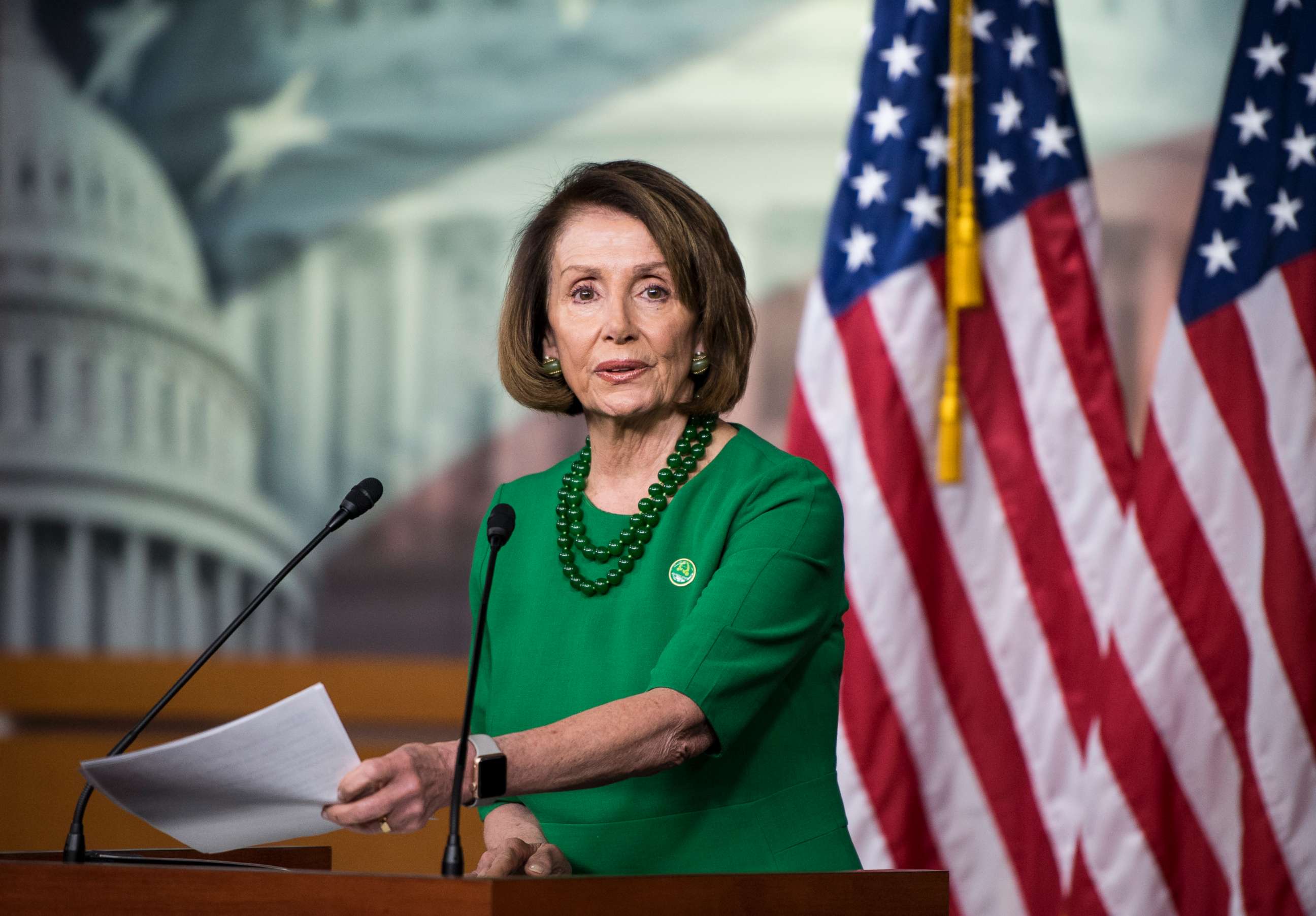No end in sight to shutdown as lawmakers mull over options
Republicans are floating several options to Trump to end the shutdown.
With the new year underway and a new Congress set to reconvene with the partial government shutdown stretching into its 12th day, Republican lawmakers are floating multiple different options to the White House ranging from short-term deals to potential grand bargains on immigration reform.
The public appeals follow a joint announcement by Senate Minority Leader Chuck Schumer and presumptive incoming House Speaker Nancy Pelosi of bills that would fully fund the agencies who have experienced a lapse in federal funding but not supply the president with any money for a wall along the U.S.-Mexico border.
The White House on Tuesday evening made clear in a statement it would reject the proposal from Schumer and Pelosi, but did not offer any apparent counter-offer ahead of a planned Situation Room briefing on border security for leaders of both parties at the White House on Wednesday afternoon.
"Speaker-Designate Nancy Pelosi released a plan that will not re-open the government because it fails to secure the border and puts the needs of other countries above the needs of our own citizens," press secretary Sarah Sanders said. "The Pelosi plan is a non-starter because it does not fund our homeland security or keep American families safe from human trafficking, drugs, and crime."
However, the announcement from Pelosi that House Democrats would seek to pass the government funding measures immediately upon her taking the Speaker's gavel on Thursday put renewed pressure on Republicans.

Leaders in the party have yet to announce a concrete package with the White House on any legitimate counter-offer in between the $1.3 billion for border security funding proposed by Democrats and the $5.7 billion for a border wall previously passed by House Republicans before relinquishing control of the chamber.
Sources familiar with the president's thinking say he doesn't plan to make any sort of counteroffer to Democrats during Wednesday's meeting with congressional leaders, though in a Cabinet meeting Tuesday he signaled he would support a border wall funding provision with a fix for the more than 700,000 individuals protected by the Deferred Action for Child Arrivals (DACA) program who were brought to the U.S. illegally as children.
It was not immediately clear, however, which of the several possible deals floated by Republicans the president found as preferable.
Sen. Lamar Alexander, R-Tennessee, penned an op-ed in the Washington Post Tuesday outlining three different paths lawmakers could choose to take that the president should accept.
One option, per Alexander, would involve Democrats providing $1.6 billion in funding to the Department of Homeland Security, with "an additional $1 billion to improve border security at ports of entry."
The second, broader deal pushed by Alexander proposes a deal previously passed out of the Senate in February that would have allocated $25 billion in border security funding with a fix for the more than 700,000 individuals protected by the DACA program who were brought to the U.S. illegally as children.
A third, much broader compromise deal floated by Alexander would involve a DACA fix as well as measures to protect others in the U.S. under Temporary Protected Status (TPS), along with more than $40 billion for border security. The so-called 'Gang of Eight' bill was passed in 2013 but was never brought for a vote in the House, and was largely dismissed by Trump and his campaign during 2016 as an 'amnesty' deal prioritizing undocumented immigrants.
Sources familiar with President Donald Trump's thinking tell ABC News he has drawn a red line of at least $2.5 billion in wall funding, a figure that Vice President Mike Pence and acting chief of staff had last presented to lawmakers as a potential compromise.
But asked during his Cabinet meeting whether he would accept less than $2.5 billion, Trump seemed to rule out the figure altogether.
"No, not $2.5, no," Trump said. "We're asking for $5.6. And you know, somebody said 2.5. No. This is national security we're talking about."
Emerging from a two-hour Sunday lunch with the president, Sen. Lindsey Graham told reporters that he was "encouraged" Trump might support $5 billion for a border wall in exchange for a declaration of support of 'the Bridge Act.' Graham and Democratic Sen. Dick Durbin previously introduced the bill that would provide one-time renewable three-year work permits to DACA recipients and extend legal status for temporary protected status holders.
"There is a lot of sympathy for the population in Congress and I think the president is open-minded about this dilemma," Graham said. "The president didn't commit, but he's open-minded."
Despite Trump's public declaration of support for a DACA deal, Democrats have said that communication between both sides has been scarce.
Ahead of the Situation Room meeting Wednesday afternoon, there was no direct contact between Trump to Schumer or Pelosi in 22 days, aside from feuding via their Twitter accounts.
For their part, Pelosi and Schumer have made no indication they will back down from their pledge to introduce the series of six appropriations bills that would fully fund the shuttered government agencies through September, and fund DHS through Feb. 8, temporarily delaying the fight over immigration and the border wall.
While Trump has framed the shutdown as a dilemma for Pelosi as she assumes the speakership, Pelosi tweeted Tuesday that it provides an opportunity for Democrats to show unity in providing a path to reopen the government as Republicans continue the debate over a possible compromise that would appeal to Trump's demands.




